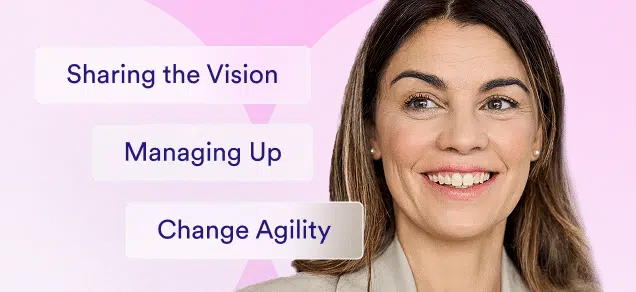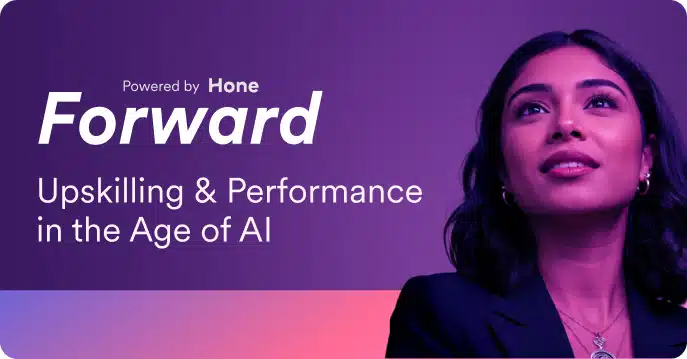Your mindset matters. It impacts how you approach your job and personal life, your preferences, and your appetite for change. Understanding whether you’ve got a growth mindset vs. a fixed mindset and what to do about it helps us better know our strengths and limitations. With this knowledge, we can grasp why we have certain feelings and levels of comfort with uncertainty, risk, and change.
Our mindsets, while an inherent part of us, isn’t necessarily permanent, unmalleable states. Once we know where we’re starting from, we can push and extend ourselves to become more flexible and dynamic than before… or realize that our optimistic openness may not be shared by our colleagues and employees.
We bet that at some point in your professional life, you’ve had to collaborate with a team of co-workers. And if you were ever paired with a “negative Nancy” (apologies – we don’t mean to slander all Nancys), she likely dragged down your project. Conversely, if your team had an “optimistic Olive” (a nickname we’re still workshopping), her determination likely drove your project forward.
The major difference between the Nancys and the Olives? Mindset. The Nancys of the corporate world is more narrow and rigid, often having a fixed mindset. On the other hand, the Olives are flexible and open, embracing a growth mindset.
What’s the Meaning of a Growth Mindset?
People with a growth mindset thrive on challenges and frequently seek them out. They also believe their abilities and intelligence can be developed. They don’t get stymied by the idea of not being a natural at a certain task or trade, instead remaining confident they can tackle most things with time and practice.
These individuals welcome constructive criticism, using it as a guidepost for where and how to improve. They remain motivated and optimistic in the face of new or steeper challenges, believing their determination and effort can overcome whatever obstacles lie in their way.
What’s the Meaning of a Fixed Mindset?
People with fixed mindsets tend to think their current innate strength and skill levels reflect the peak of possibility. In other words, they believe natural talents trump effort with no path to improve in those areas. This outlook often leads to needing excessive control, a reluctance to attempt new challenges, and the likelihood that they’ll discourage others.
These individuals prefer to stick with what they know, resisting change and growing anxious when expectations and variables shift beyond their comfort levels. They fear failure yet lean into its inevitability when facing what feels like an overwhelming hurdle to clear.
What’s the Difference between a Growth Mindset vs. a Fixed Mindset?
One’s mindset emerges in many aspects of their daily life and approach to work. Those with fixed mindsets tend to avoid changes or try new things, while growth-minded individuals crave novelty and new challenges. This difference rears its head in many settings.
Fixed-mindset folks opt for the same old restaurant and order their “usual,” while those with a growth mindset get excited to check out that new fusion joint and try the daily special. But the risk aversion a fixed mindset displays spans far beyond what they eat for lunch.
Fixed-mindset workers prize certainty and appreciate clear-cut, measurable goals so they can ensure they’re on track to meet expectations. These workers would rather be praised for their inherent talent and smarts while fearing failure so much they yearn to avoid any situation where that’s a potential outcome. They also see others’ success as a sign of their own shortcomings.
Meanwhile, their growth-loving counterparts focus on putting in a good effort while welcoming and incorporating feedback as they go. They are certain they can attain mastery with enough hard work and a commitment to lifelong learning. They take inspiration from the success of others and practice self-examination to identify areas where they can improve.
Growth Mindset vs. Fixed Mindset Examples
Growth Mindset
History provides plenty of examples of famous figures featuring one of these two mindsets. Examples of growth mindset include:
- Thomas Edison—There’s no denying the genius of Thomas Edison. Yet as a boy, he was seen as rather average. Fortunately for all of us, that didn’t deter young Thomas. He was simply propelled by a longing to learn and a hunger for invention. In fact, he was often inspired by what he didn’t know. And he viewed failure as integral to experimentation.
- Lou Gerstner of IBM—Even die-hard Apple fans acknowledge that Gerstner helped ignite an amazing corporate turnaround for IBM. This can partially be attributed to the fact that, as CEO, he shunned ego and notions of self-importance. Instead, he created a culture that fostered and encouraged mentoring. This allowed employees and IBM as a whole to flourish.
- Jackie Joyner-Kersee—Sure, Jackie Joyner-Kersee has an innate ability to run fast. But plenty of people with innate abilities don’t become Olympians. Joyner-Kersee thrived in part because she maintained a positive outlook. As she once noted, “I don’t mind losing as long as I see improvement. Or feel I’ve done as well as I possibly could.”
Fixed Mindset
Organizations and individuals displaying a fixed mindset include:
- Enron—The oil company, now infamous for corporate corruption and fraud, once attracted the best and the brightest. They were known to hire for innate talent. And they had many managers who believed their first instinct was their best instinct. This made it more difficult to consider alternate paths. Ultimately, when things got tough, the company found it easier to lie than to try and implement new practices. And it doesn’t take an MBA to know that lying isn’t a great way to do business.
- John McEnroe—Yes, McEnroe was a tennis champion. However, he’s known as much for his temper as he is for his topspin. This anger stemmed from a fixed mindset that deemed a person is only successful if he wins. And that served (pun intended, thank you) as an impediment to learning from lost matches. It did make for some wildly entertaining on-court antics, though.
- David Rockefeller—He might be lauded as a kind philanthropist, but when Rockefeller led Chase Manhattan Bank, he did so with a proverbial iron fist. More despot than director, his managers lived in fear of his disapproval. This only served to stifle innovation; who wants to pitch a new idea if you’re likely to get shouted down (spoiler alert: not us)?
How to Unlock Your Growth Mindset with Self Reflection
Are you now speculating about your own mindset? Feeling unsure as to which way you might lean? Then it’s time for a little self-reflection. Throw on some mood-appropriate music (light jazz, perhaps?) and ask yourself these questions:
- Do you have a bucket list? If so, does it have a learning category?
- Do you use praise to foster development in both your direct reports and your peers? How so?
- How do you feel when a challenge is in front of you?
- Do you apply labels to your peers or employees? Does that help or hurt your team?
- How do react when you fail? What does that reveal about your mindset?
- How do rejection, blame, or shyness affect your work relationships?
Worried your answers reveal a fixed mindset? First things first, turn off that jazz music. Secondly, realize there’s no need to fret. Your mindset can certainly evolve. And you can actively work to change your outlook. After all, there’s no reason to view current positions or labels as static.
For example, rather than saying, “I’m not a manager,” declare, “I’m not a manager yet.” That subtle shift in language allows you to open yourself up to possibility and positivity. And when you embrace those two ideas, you naturally begin to develop a growth mindset. In turn, this will likely lead to self-improvement and greater success – both for yourself and those around you.
By reframing obstacles as opportunities and criticism as suggestions, we can begin to break the fixed mindset paradigm. We can lean into the process, stay grounded, and remain confident it will eventually yield sufficient results rather than obsessing over potential failure.
Lucky for everyone, we don’t have to undertake this journey alone. Trained professionals are here to teach you the right methods to incorporate a growth mindset into your everyday life and coach you in your quest to make yourself—and your team members—more open to change.











